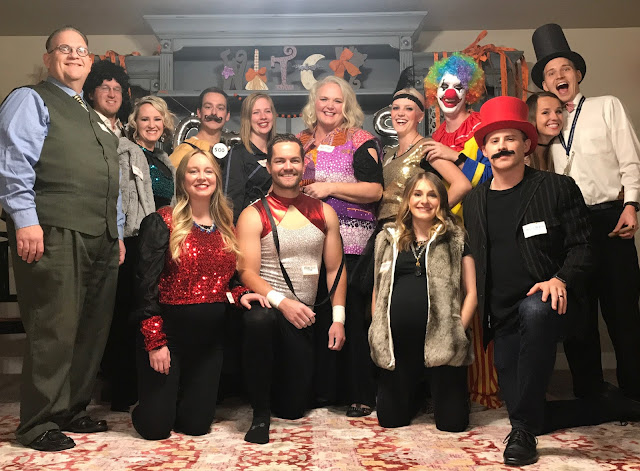adult sleep
Normally I'm all about the child sleep -- it's what I spend so much of my time thinking about, talking about, and working on!
I haven't really been interested in adult sleep because sleep has always been suuuuuper easy for me. I close my eyes and I'm OUT. But I am tired a lot (probably because I go to bed too late and because I'm pregnant), so I decided I'd check out a book on adult sleep that I heard a podcaster talk about. To be honest, I didn't really like the book, so I decided to just pull out all the useful information into one short blog post to save anyone else the time of reading it (but if you really want to, it's called Sleep Smarter, by Shawn Stevenson).
The book is broken down into 21 different things you can do to improve your sleep, so the 21 principles might be all I need to write down!
I haven't really been interested in adult sleep because sleep has always been suuuuuper easy for me. I close my eyes and I'm OUT. But I am tired a lot (probably because I go to bed too late and because I'm pregnant), so I decided I'd check out a book on adult sleep that I heard a podcaster talk about. To be honest, I didn't really like the book, so I decided to just pull out all the useful information into one short blog post to save anyone else the time of reading it (but if you really want to, it's called Sleep Smarter, by Shawn Stevenson).
The book is broken down into 21 different things you can do to improve your sleep, so the 21 principles might be all I need to write down!
- Schedule sleep. It's important just like other projects you might be working on, so make sure to prioritize it so that it happens.
- Get more sunlight during the day, especially first thing in the morning. Get it on your skin and (indirectly) in your eyes (aka, sometimes you should take the sunglasses off).
- Avoid screens for 90 minutes before bed. If you can't avoid screens, use blue light blockers in any way possible.
- Stop consuming caffeine by about 2pm. <-- This one isn't super applicable for me. I hardly ever consumer caffeine (if I do, it's a random soda), and when I do, I don't feel like it affects me at all!
- Sleep cool -- close to 68* according to the book! Which is wild, because in the summertime, our thermostat is set to like 76* at night (and I still sleep with a sheet and light blanket).
- Get to bed within a few hours of the sun going down, generally between 9&11pm. The "money" sleep hours are between about 10pm and 2am, so you want to make sure to get those ones! Additionally, sleep cycles are about 90 minutes long, and you'll feel less groggy if you wake between sleep cycles rather than in the middle of one. Therefore, aim to sleep (and set your alarm in accordance with) for 7.5 hours (five cycles) or 9 hours (6 cycles) rather than the often-recommended 8 hours.
- Fix your gut. Try to eat organic, locally grown, unprocessed foods as much as possible. Eat foods high in magnesium and low in aluminum (green leafy veggies, pumpkin seeds, sesame seeds, superfoods). Also consider using topical magnesium.
- Create a sleep sanctuary. The bed is for sleeping, not working or browsing IG. Get a houseplant to improve air quality.
- Orgasm induces a whole slew of helpful-for-sleep hormones.
- Black out the room -- of outside light and other artificial lights like alarm clocks.
- Exercise sometime during the first part of the day (exercising at night can throw off hormone and temperature levels).
- Get electronic devices (phones, computers, tvs, stereos, AC units, fridges) out of your room or at least 6' away from you to cut down on EMF (electromagnetic field) exposure.
- Lose weight, as too much body fat can stress your organs and nervous system, as well as disrupt your endocrine system (responsible for hormones like melatonin, oxytocin, and cortisol -- all big factors in your sleep).
- Stop drinking alcohol at least 3 hours before bed, and drink a lot of water to compensate. <--also not applicable to me, but just figured I'd include it for anyone it is relevant to.
- Sleep in a comfortable and helpful position (but doesn't give an "ideal" position, pretty much just talks about different ways to improve the position you already sleep in).
- Calm the chatter in your brain with meditation or breathing exercises. The book suggests doing the meditation before getting into bed (to maintain the idea that the bed is for SLEEP), but I think that's stupid.
- After trying all the other ideas, consider supplements like chamomile, kava kava, or valerian. Use the right dose and stay away from melatonin supplements whenever possible.
- Be early to rise. To help, go to bed within about a half hour window each night.
- Utilize regular massage (professional and/or self-massage) to help de-stress and relax.
- Dress in comfy, non-restrictive pajamas (no bras for women, no tight underwear for men).
- Spend time in nature, directly connecting your body with dirt, grass, and/or sand. This allows negatively charged antioxidant electrons from the earth to enter the body and neutralize positively charged free radicals (which helps lower stress and inflammation).



Comments
Post a Comment
Leave some comment love! And if you're a no-reply blogger, check back here for my replies :)